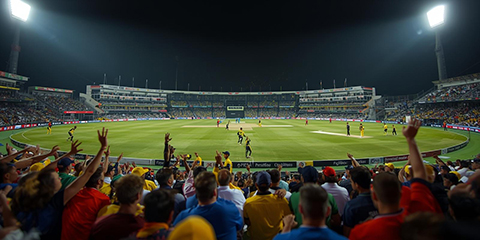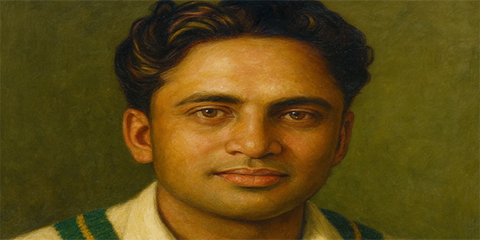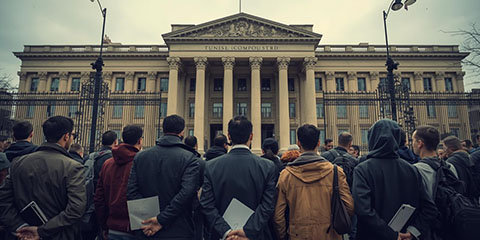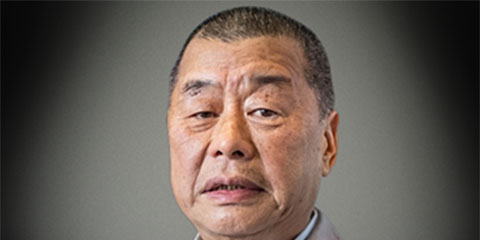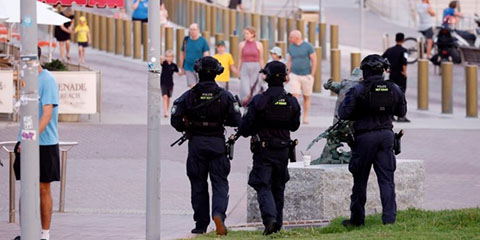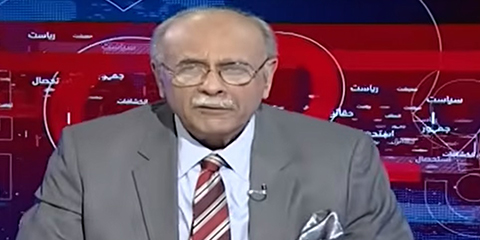Jamsheed Marker: The Parsee voice that defined Pakistan cricket and international diplomacy
JournalismPakistan.com | Published 3 months ago | Dr. Nauman Niaz (TI)
Join our WhatsApp channel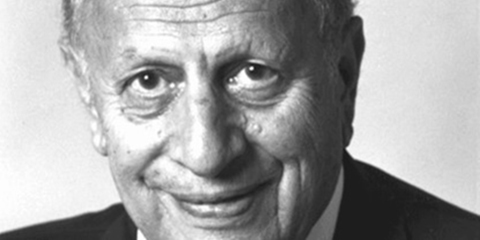
ISLAMABAD—In those early summers of Pakistan cricket, when the game itself was still shaping its outlines upon the subcontinental landscape, Omar Kureishi and Jamsheed Marker emerged as voices that lent cricket an elegance beyond the field. They were not just broadcasters; they were custodians of cadence, interpreters of rhythm, aristocratic in bearing, erudite in phrasing, and unfailingly evocative. Their commentary became less a narration of strokes and wickets than a recital of prose woven in the air. The 1950s belonged to them, and much of the 1960s too, their timbre echoing through radios into drawing rooms and tea stalls alike, turning cricket into poetry carried upon unseen waves. Where Kureishi was every inch the consummate journalist, with his writings sharpened by intellect, Marker stood equally tall, a diplomat whose voice bore the refinement of polished corridors and international chambers.
Radio Broadcasting Legacy That Defined a Generation
Marker's greatest claim to fame may always rest upon those radio broadcasts, the power of his descriptive imagery unparalleled in Pakistan's young broadcasting history. He was not, perhaps, of the same gilded league as Alan McGilvray, yet in his measured tones the audiences discovered the spell of live cricket, the illusion that the field itself was unfolding before their very eyes. For over 20 years, he remained inseparably the voice of Pakistan cricket, even as his foreign service would at times draw him far from the roar of stadia and the dust of outfields. His family, steeped in the love of the game, ensured his tether never loosened.
Together with Kureishi, he created a duet instantly welcomed by the nation, until, in time, the microphones passed on to other inheritors, Iftikhar Ahmad and Chisty Mujahid, who carried their lineage forward across broadcasting boxes the world over. Yet for those who heard him, Jamsheed Marker's voice remains an inheritance: the sound of a country discovering itself through cricket.
Birth and Distinguished Career Overview
Jamsheed Marker, born November 24, 1922, lived a life that seemed to move in harmony with two worlds, of cricket and of diplomacy, each demanding its own poise, each bearing its own stage. To his name was conferred the Hilal-e-Imtiaz, and Sitara-i-Quaid-i-Azam, yet the greater distinction lay in the manner of his presence: a diplomat of forty-two years who carried the art of conversation as though it were a bat timed sweetly to a ball.
Ambassador to the United States During Critical Years
In Washington, between September 1986 and June 1989, under the watch of Prime Ministers Mohammad Khan Junejo and Benazir Bhutto, Marker served not as an envoy but as interpreter between nations, his words weighted with balance, his bearing with calm. His voice, once heard over the air as a cricket commentator, brought to chancelleries the same cadences—serene, urbane, touched with wit—that once described the arc of a cover-drive.
Global Diplomatic Journey Across Continents
He wandered the map of the world in Pakistan's service: Romania, the chill vastness of the Soviet Union between 1969 and 1972, the expanse of Canada, the iron gates of East Germany, the discipline of Japan, the corridors of the United Nations at Geneva, the philosophical air of France, the firm pragmatism of West Germany, the complexities of the United States, and, finally, the United Nations in New York (1990–1994), where global tides met and parted.
For thirty years, he shouldered the title of Ambassador, ten capitals his home, nine further accreditations his charge. Yet the numbers only hint at the symphony. For Marker's was not a career of mileage alone; it was a life played allegro, the diplomat as artist—each posting a new movement, each negotiation a phrasing of grace.
Dual Legacy in Cricket and Diplomacy
Jamsheed Marker lived two lives in one frame, diplomat and cricket commentator, each carried with a grace which seemed less learnt than inborn. He exhibited, with the quiet dignity of his Parsee heritage, a career in diplomacy that stretched for forty-two years, and yet for many, his voice first became known not across embassies, but across the wireless, rising above the murmur of radios to accompany cricket's pageantry in Pakistan.
He served as Pakistan's Ambassador to the United States during the turbulent years between Junejo and Benazir Bhutto, a post in which he played his part in the shadow-play of the Soviet withdrawal from Afghanistan. Later, from 1995 to 2005, at Eckerd College in Florida, he would translate his experience into lessons in diplomacy, offering to younger minds the distilled wisdom of a lifetime.
Early Life and Education at Prestigious Institutions
Yet the chronicle of his beginnings carries its own lyric. Born in Hyderabad in 1922 to a distinguished Parsee family, his father a steward of business, his mother the quiet hearth of home, young Marker first knew the cadences of English schooling at Doon, and later the avenues of Lahore's Forman Christian College. There, among books and cricket fields, he learnt how to order thought, and how to give stroke and word the poise they deserved. Cricket was no less his training ground than diplomacy; bat in hand at Dehradun or Lahore, he rehearsed the timing which would later mark his commentary and his conduct alike.
World War II Naval Service and Business Years
The Second World War cast him into service, where he commanded a minesweeper in the Royal Indian Naval Volunteer Reserve. The medals he brought back, the 1939-45 Star, the Burma Star—spoke not only of duty but of a discipline that never left him. After the war, he stepped into the family's shipping and pharmaceutical business, yet by the 1950s, another calling summoned him; his voice, mellifluous and balanced, joined Omar Kureishi's on Radio Pakistan. From the Bagh-e-Jinnah in Lahore in 1954, where India toured Pakistan for the first time, he gave to cricket not analysis alone but cadence, as though describing strokes were akin to narrating symphonies.
Comprehensive Diplomatic Career Spanning Four Decades
Then, diplomacy claimed him wholly. In 1965, he was appointed High Commissioner to Ghana, with concurrent charges in Guinea and Mali. From there, his journey spanned the globe: Romania, Moscow, Canada, East Germany, Japan, Geneva, West Germany, France, Washington, and finally New York at the United Nations. Ten capitals bore his residence, nine more his concurrent accreditation, thirty years of service, unbroken, like a score written without pause.
Multilingual Diplomat and International Recognition
He moved with ease between languages, English, French, German, Russian, Urdu, Gujarati, his words finding the register of each ear. In 1999, Kofi Annan appointed him Special Representative to East Timor, where even adversaries praised his calm: the Portuguese minister called his approach "sophisticated," the Indonesians noted how his touch "smoothed the snags." It was diplomacy as art, the envoy as musician. He himself chronicled these passages in Quiet Diplomacy (2010) and East Timor (2003), memoirs that read less as accounts of power and more as reflections on human balance.
A Life of Elegance Beyond Official Duties
Marker's life, then, was not a ledger of postings or awards. It was an atmosphere. In him, cricket and diplomacy shared a common quality—the sense that beauty and proportion, once given place, could reconcile even the fiercest storms. He was not merely a servant of state, nor only a voice at the boundary; he was, like the best of artists, one who left behind not facts alone, but a memory of elegance.
East Timor Mission and Complex Historical Challenges
The British journalist Richard Lloyd Parry, in In the Time of Madness, recalls Marker's words spoken with characteristic composure: a salute to the Indonesian police, and to the "superb leadership" of their commander Timbul Silaien, as East Timor voted for its freedom. Yet history, with its cruel irony, soon altered the scene. Within days, those same forces were turned to sterner work—the deportation of the Timorese, and, in places, the taking of life itself. It was the dissonance of diplomacy's language measured against the pitiless rhythm of power.
Diplomatic Style and Professional Philosophy
Marker's own postings led him through France and the Soviet Union, Canada and Japan, West Germany and East Germany, where he raised Pakistan's flag upon new ground. In each place he carried himself with a patrician restraint, a non-Muslim representing a Muslim nation with a dignity that made religion a matter of little consequence. He was respected in the drawing rooms of Islamabad no less than in the chancelleries of Europe, and among leaders of Pakistan he moved with a familiarity born of his own social poise.
Political Views and Assessment of Pakistani Leaders
Critics, though, whispered that he was more at home with the soldier than with the politician. In his memoir Cover Point (2016), Marker's recollection of General (later Field Marshal) Ayub Khan is that of a man who 'gave us security, law and order, good governance and economic prosperity.' The judgement was unambiguous, the tone admiring, an envoy finding comfort in the discipline of barracks and parade grounds rather than the clamour of parliamentary wrangles.
Of the civilians, he was less forgiving. Though of Zulfikar Ali Bhutto, he spoke with more nuance, praising the vigour and many qualities of the man, yet finding in his iron hand the roots of so many of Pakistan's subsequent misfortunes.
Teaching Years and Academic Contributions
In the later movement of his life, when the vigour of embassy corridors had begun to yield to a gentler rhythm, Jamsheed Marker turned, not away from diplomacy, but towards its interpretation. From 1995 to 2005, he stood before students at Eckerd College, Florida, speaking not in the voice of doctrine but in the mellow tones of one who had seen the world's tempests and had survived them. His course in Diplomacy in International Relations was less a curriculum than a conversation between age and youth; wisdom, tested upon the anvil of thirty years, imparted to minds still shaping their first certainties.
Final Years and Honorary Recognition
In 2004, Prime Minister Shaukat Aziz conferred upon him the open-ended role of ambassador-at-large, a title that seemed almost allegorical for a man whose life had been lived in the great thoroughfares of the world. And in 2011, at Forman Christian College in Lahore, alma mater of so many who had dreamed beneath its quiet spires, Marker was robed with an honorary doctorate, his name placed among the ceremonial roll of remembered sons.
Death and Family Legacy
Death, when it came, arrived without hurry, as if it too respected the dignity of his presence. On June 21, 2018, in Karachi, Jamsheed Marker took his leave at the age of 95. He left behind his wife, Arnaz Minwalla, and the memory of his first companion, Diana Faridoon Dinshaw, who had succumbed to illness in 1979. Two daughters were born of that earlier marriage: Niloufer Reifler, who survives him, and Feroza, who was taken, too early, in an accident in 2001. His brother, Minocher known to intimates as Minoo remained another bearer of the family's name and lineage.
Unprecedented Diplomatic Achievement Record
And yet it is not in the bare record of names that his legacy lies. Marker's life was a long assignment of service, thirty years of uninterrupted diplomacy, carried across continents, capitals, and crises. He was there in the closing act of the Soviet presence in Afghanistan, one of the quiet hands that nudged history towards withdrawal. By the time of his passing, the chronicles had conferred upon him a distinction remarkable in its scope: that he had been ambassador to more countries than any other man of his time.
Literary Works and Historical Documentation
His voice, once so often carried across the wireless waves as a cricket commentator, found its permanence in books. East Timor: A Memoir of the Negotiations for Independence (2003), a witness's testament. The American Papers (1999), with Roedad Khan, exposed the secret corridors of power and correspondence. And finally, Quiet Diplomacy (2010), his memoir, where the prose was as calm as the man himself, speaking of wars and negotiations as one might of weather long observed: not without drama, but always with proportion.
Enduring Legacy as Artist and Diplomat
Thus, Jamsheed Marker remains: a figure whose life was written less in the dust of numbers than in the atmosphere of respect, memory, and presence. He was a diplomat by profession, a commentator by avocation, but, above all, he was a witness—bearing to posterity not only the facts of history, but its cadence.
Personal Reflections on Pakistan's Birth and Early Years
To sit with Jamsheed Marker in his twilight years was to feel history lean closer, to hear its cadences given voice by one who had walked its corridors. At ninety-four, his memory retained the clarity of youth, and though his body was tethered to the chair, his mind remained unbound, roaming still through decades of diplomacy, music, art, and cricket.
He would begin with the fraught start of Pakistan, that improbable creation of 1947. He remembered an evening at the New Delhi Club, when Hindus, Muslims, and Europeans argued over the new country's very chance of survival, the whisky flowing as freely as the scepticism. Predictions of collapse were tossed about—three months, six months, perhaps six years before Pakistan would crawl back to India and beg for readmission. The cynicism was palpable, and he recalled it with the faintest note of disdain. For in those days, Pakistan had nothing worse than nothing, as he said, 'minus, zero.' Yet there was Jinnah, steadfast, immovable, his iron will summoning a nation into being. Marker saw it as the solitary force that conjured Pakistan into life, the will of one man bending circumstance to his vision.
Witnessing Pakistan's Refugee Crisis and National Spirit
From Delhi, Marker made his way to Karachi. Along the road from the airport to the Cantonment station, he saw the refugee camps. They were raw with suffering: men and women in bloodied clothes, children crying, mothers wailing on the roadsides. Possessions amounted to little more than battered suitcases. And yet, from each camp arose a chorus, defiant and improbable: Pakistan Zindabad. It was passion amidst ruin, belief blazing in the shadows of grief. Marker remembered how, in those moments, sorrow and hope intertwined, and how, in the very depths of misery, lay an unquenchable determination to survive. The spirit of those refugees was, for him, Pakistan's true genesis—a country born not of wealth or preparation, but of resolve, a will to endure against all calamity.
Liaquat Ali Khan: The Leader Who Sacrificed Everything
And through it all stood Liaquat Ali Khan, measured, assured, exercising power without ostentation, a leader firm in command yet graceful in restraint. In Marker's telling, those first leaders were men of fibre, and their presence gave the struggling nation its poise amidst chaos. After the passing of Jinnah, the mantle of resolve fell upon Liaquat Ali Khan. To Marker, Liaquat stood as a figure of unswerving devotion, a man who gave not in part but in whole. He had abandoned vast estates, thousands of acres in his hometown in India, even a house in Delhi's most coveted quarter, leaving behind comforts that might have tempted weaker men. For Pakistan, he gave everything, and for Pakistan, he lived. In Marker's remembrance, his last words carried the essence of that sacrifice, an invocation that God Himself might guard the fragile new nation.
Personal Connections with Pakistan's First Prime Minister
Karachi, in those years, was a small city of close acquaintance, and through the friendship of Begum Ra'ana, Marker came to know the prime minister not as a distant symbol, but as a man. He recalled how sycophants, eager for privilege, urged Liaquat to surround himself with English military secretaries and aides-de-camp, clad in their immaculate uniforms. Liaquat's answer was curt and noble: he required no ornament of borrowed authority. If ever he placed an Englishman in such posts, it would be for Pakistan's need, not his vanity. The pomposities of empire left him unimpressed; he carried his own measure of dignity.
To Marker, Liaquat's command was never autocratic but exemplary, power held in hand yet exercised with restraint. He insisted on system, on order, on governance shaped not by whim but by principle. Marker often mused that had there been two or three more men of such fibre, Pakistan's path might have been steadier. But too soon came leaders who viewed the country as an inheritance for themselves, not as a trust for its people.
Early Government Service and Key Encounters
His own first brush with power came in the late 1940s, when he served on the naval selection board under the Home Department of India. It was there, in an old Shivaji fort at Porbandar, that Morarji Desai, then home minister, arrived for inspection. Desai, like Marker, spoke Gujarati, and he pressed the young officer with questions about independence. Marker replied that Hindus, Muslims, and Sikhs sat together on their board in impartial service, and he wished such balance might endure. Desai, sceptical, warned that the genius of politicians would never allow it. He urged Marker to remain and work with him, asking of his plans. But Marker had already set his heart upon Quetta, the home of his family for three generations. He told Desai that when released from the shackles of government service, he would return there. Desai remarked that Quetta might one day fall within Pakistan. To this, Marker answered with quiet certainty: Quetta would indeed become Pakistan, and to Pakistan he would belong.
Golden Age of Pakistan's Early Years
Marker often recalled those early years of Pakistan as if from a sepia-toned album, the air still scented with hope and uncorrupted faith. His family's business in shipping and chemicals anchored them in Keamari, Karachi, yet his memory drifted more often to the long drives across the night roads of Sindh and Balochistan. Until 1952, he would set out in his own car, leaving Karachi at ten in the evening, reaching Sukkur by dawn, then through Sibi, onwards to Quetta. The journeys were nocturnal, dictated by the furnace of the day, but not by fear. There was no menace on the roads, no shadow of insecurity. Should an accident occur, bus drivers appeared out of the darkness within minutes, twenty strong, to lend a hand. It was, he would sigh, another world entirely, a Pakistan innocent still of bribery, untouched by the rust of cynicism.
Working with Pakistan's Founding Leaders
In that time, he mingled with the men who carried the young nation on their shoulders, Chundrigar, Fazlur Rehman, and Khawaja Nazimuddin. They were men of effort, bound together in common cause, working without guile to solve the problems before them. Nazimuddin, he observed, was not the brightest light among them, but his honesty and modesty gave him a luster more enduring than cleverness. Even Liaquat Ali Khan, whose death Marker would always speak of in hushed reverence, was unbending in devotion to the cause. There were evacuee properties left in the wake of Partition, vast estates abandoned by Hindus as Muslims abandoned theirs across the border.
Liaquat Ali Khan's Integrity in the Face of Corruption
Bureaucrats began to scheme, and corruption's shadow entered. Liaquat, however, rejected all temptation. Marker remembered a luncheon when Liaquat arrived late, to the sharp displeasure of Begum Ra'ana. The prime minister, usually of calm temperament, burst into fury. A secretary had placed before him a file granting land to his own name, suggesting it was his entitlement. Liaquat flung the papers across the room, gesturing through the window at the slums of Pakistan. When every displaced family had been given shelter, he thundered, then, and only then, could such a file be placed before him.
Pakistan's Strategic Alliance with the West
The tides of history pulled Marker into questions of diplomacy. When Mohammad Ali Bogra's government aligned Pakistan with the Western bloc, he judged it not as folly but necessity. America then was the world's purse, its abundance sought by all, and Pakistan, ahead of India, secured that friendship. It was, he said, a masterstroke of diplomacy, one that enraged Delhi. To him, the Indian threat was no phantom of paranoia but palpable, a constant intent to weaken, divide, and destroy Pakistan. He remembered Krishna Menon, shadowing Nehru like Rasputin at court—crafty, dangerous, bent on bending his master's will. Had China not checked India in the war of 1962, Marker believed, Pakistan might already have been broken by Indian design.
Critical Assessment of Early Policy Mistakes
And yet, he was candid enough to acknowledge fissures of their own making. Jinnah's insistence on Urdu as Pakistan's national language was one of the few blunders of the Quaid—a seed that deepened the estrangement of East and West. To Marker, it was the beginning of a struggle not easily undone, a wound inflicted not by enemy but by the very hand that had carved the nation from nothing.
East Pakistan Crisis and Bengali Relations
Marker, with the poise of one who had seen nations rise and unmake themselves, often returned to the tragedy of East Pakistan. To him, it was the disdain of West Pakistan's rulers towards their Bengali brethren that sowed the seeds of rupture, a contempt so casually worn that it seemed almost habitual. The blunder, he believed, undid much of what Jinnah had built, worsened by Fatima Jinnah's echoes of the same failing. In Dhaka, he once watched crowds of Bengalis acclaiming Pakistan's cricket team with passionate devotion, and yet, not a single Bengali was allowed in the side. It was, he recalled, a colonial dismissal, a denial that whispered of deeper wounds.
Analysis of the Military's Role in Pakistani Politics
The emergence of the military in statecraft, he felt, was not thrust upon Pakistan by fate, but coaxed into being by its own politicians. They summoned the tiger, and in time the tiger devoured them. Marker himself, ever an outsider in the Foreign Service, handed in his resignation each time governments changed, never climbing by intrigue, never hacking his way upwards through bureaucratic thickets.
Pakistan-China Relations and Foreign Policy Shifts
When the winds shifted towards China in the mid-1960s, he remembered the Americans bullying Pakistan relentlessly, reminding her to remain neighbourly to India. Yet it was Suhrawardy, not Bhutto, who first struck the path to Peking. Bhutto arrived later, Mao cap perched for the theatre, redirecting what had already been set in motion. Suhrawardy's disdain for the Arabs during the Suez Crisis he remembered with wry clarity, dismissing them as 'zero upon zero', a remark that unsettled the world, but one Suhrawardy did not repent. India, eager as ever, seized upon it to brand Pakistan as a slave to the West.
Three Decisive Turns in Pakistan's History
In assessing Pakistan's course, Marker marked three decisive turns: Ayub's martial law, greeted with relief; Bhutto's arrival, which gave the people their tongue, their sense of freedom; and Zia's takeover, cold yet patriotic, destructive yet the fulfillment of the nuclear dream. To Marker, Ziaul Haq was a paradox, a man who cloaked the nation in the dark raiment of fundamentalism yet, in one crucial matter, held his ground with unbending resolve. He credited Zia most of all for standing firm against the Americans on the nuclear question. While Pakistan played the frontline pawn in the Afghan game, it was Zia's obduracy, or perhaps American indulgence, that allowed the nuclear plant to be completed. He endured every sanction, every censure, with a stoicism that bordered on fatalism, determined that no foreign dictate would halt the programme. For that alone, Marker accorded him a rare respect.
Cricket Philosophy and Commentary Style
When the subject turned to cricket, Marker's features softened, touched by nostalgia. Omar Kureishi, he recalled, had been more than a friend; he had been the voice that carried cricket into Pakistan's heart and beyond, spreading it across South Asia. The game itself, Marker mused, was incongruous in the subcontinent: costly, elaborate, never truly instinctive to its soil, and yet beloved because men like Kureishi had given it cadence and soul.
Cricket Heroes and Modern Game Disappointments
Asked of his heroes, he summoned names that carried the echo of Pakistan's first steps into cricket's firmament: A.H. Kardar with his imperious command, Fazal Mahmood with his blue-eyed spell, Imtiaz Ahmed with his early grace — and, above all, the "Little Master," Hanif Mohammed, the willow's eternal poet. But he confessed disappointment at what the game had since become. The cricketers of his memory had stepped onto the field clad in white like flocks of sparrows, a vision of purity. Today's players, he lamented, seemed more like jesters in motley, stripped of solemnity.
Cricket as a Reflection of Values and Time
For Marker, cricket was never only a sport; it was a reflection of values, of rhythm and restraint, of time's patience. And time, he sighed, no longer waited. The county game in England had lost its soul, he felt, hurried along by a world that no longer lingered for the long afternoon. He remembered Danny Kaye's wry remark after a day at Lord's, 'I have seen cricket, and I know it isn't true,' and in those words heard a truth of his own: that cricket, like Pakistan, had become a thing forever caught between memory and present, between its poetry and its parody.
Final Assessment: A Life of Harmony and Grace
And so, Jamsheed Marker lingers in memory much as a late evening light does upon a quiet ground—subtle, mellow, and suffused with grace. He was, in essence, an artist who painted with words, giving to Pakistan's cricket its first music of the airwaves, a cadence that lifted the commonplace into the realm of the poetic. In diplomacy, too, his presence was no less urbane, assured, and touched with that rare poise which reconciles the elegance of manner with the gravity of purpose. To call him only a commentator is to miss the diplomat; to call him only a diplomat is to forget the voice that gave cricket its timbre in a nation still learning to listen to itself. He was both, indivisible: an evocative commentator and a brilliant diplomat, whose life was a harmony of two noble callings, played out in registers of style and distinction.
Dr. Nauman Niaz is a civil award winner (Tamagha-i-Imtiaz) in Sports Broadcasting & Journalism, and is the sports editor at JournalismPakistan.com. He is a regular cricket correspondent, having covered 54 tours and three ICC World Cups, and having written over 3500 articles. He has authored 15 books and is the official historian of Pakistan Cricket (Fluctuating Fortunes IV Volumes - 2005). His signature show, Game On Hai, has been the highest in ratings and acclaim.








